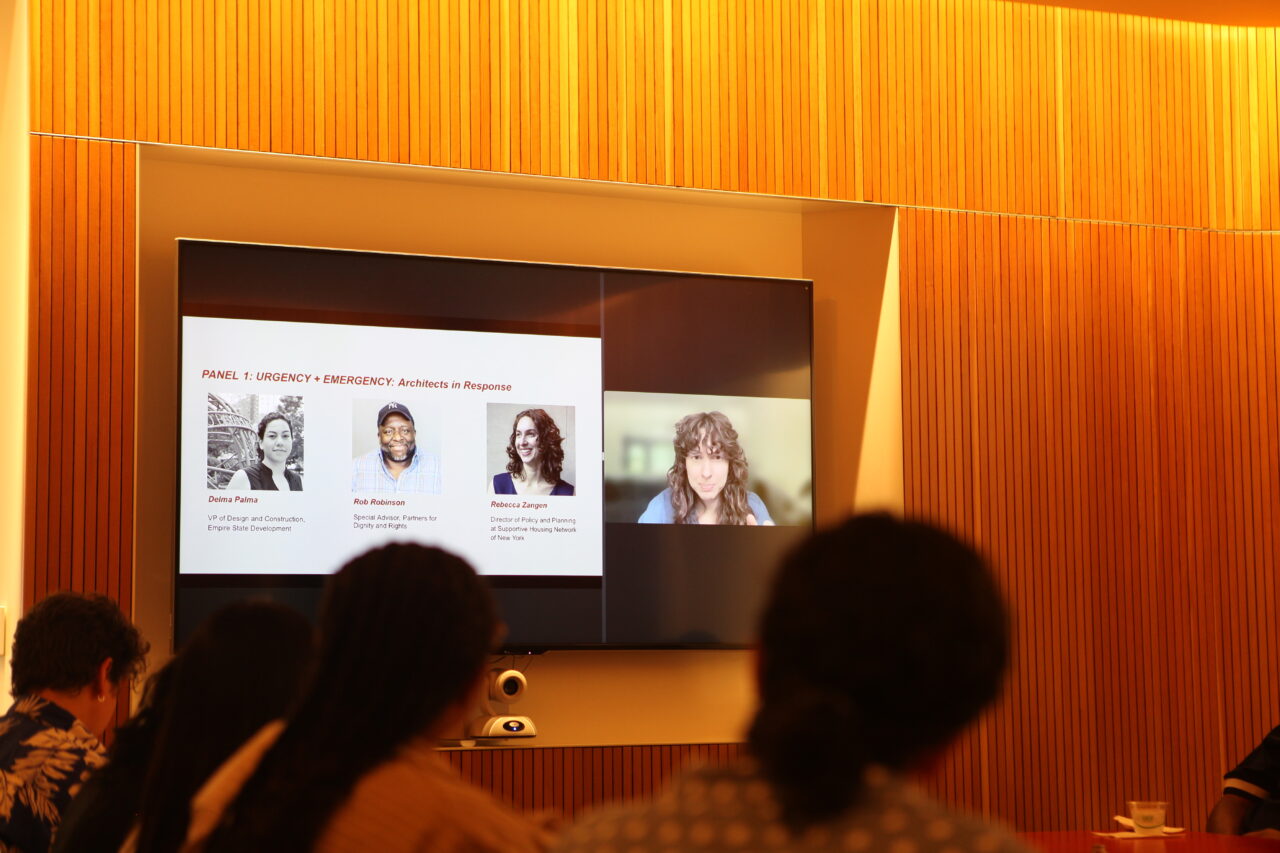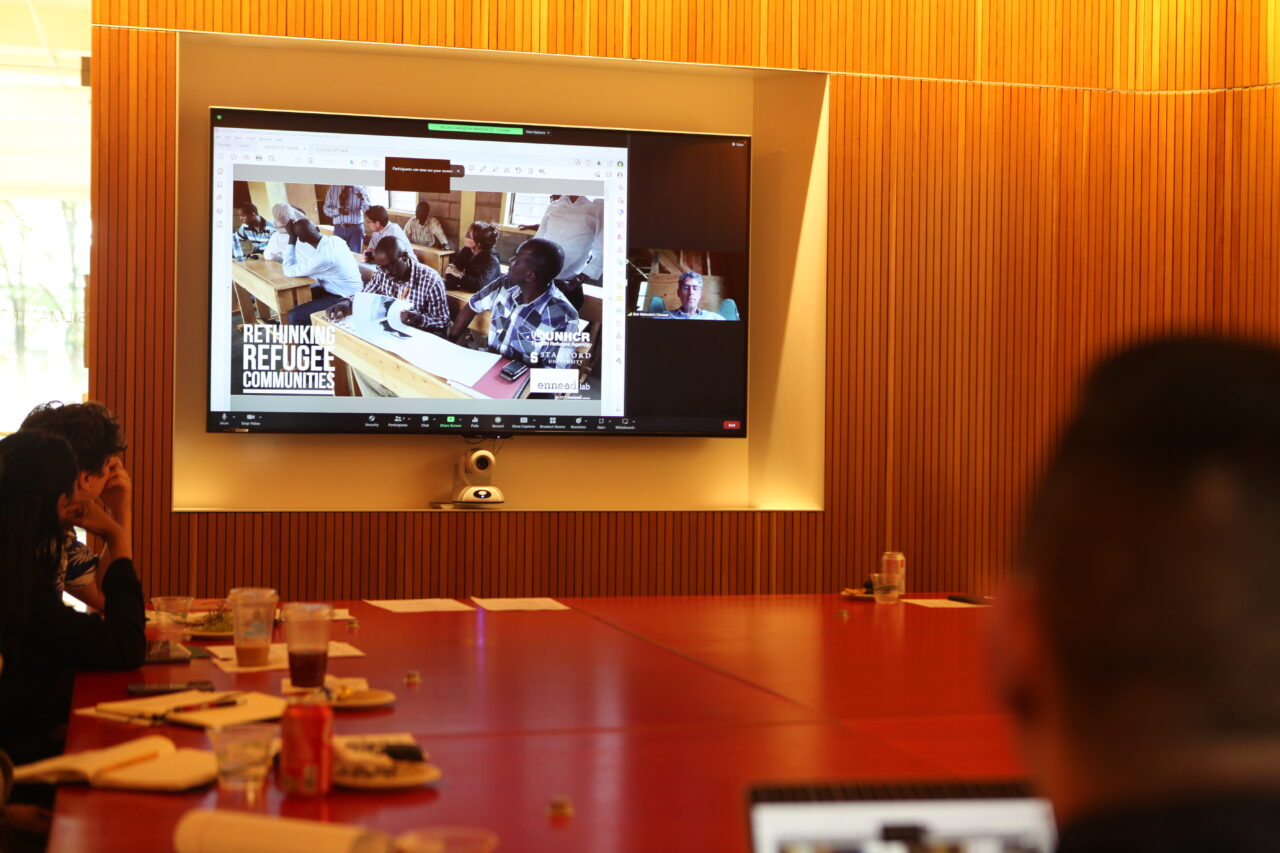by: David Polk, AIA, and Nicole Vlado Torres, AIA, NOMA
With New York City in an asylum-seeker-fueled State of Emergency since last October—amidst an ongoing housing crisis—how are the City’s needs identified and prioritized to allow its residents to function and thrive? For its first development session of 2023, the AIA New York Civic Leadership Program met at the Center for Architecture on July 14, 2023 to engage in a conversation on the topic.
The two-panel event Urgency, Emergency, Emergence: How to Shelter Asylum Seekers During a Housing Crisis was organized and led by David Polk, AIA, and Nicole Vlado Torres, AIA, NOMA. Using the City’s current housing and humanitarian asylum crises as the framework, this event engaged professionals working in and around housing to explore how they identify urgency, how it’s impacted by emergency events, how the emergence of solutions take form, and what (if any) role architects have in these processes.
In the first panel, Urgency and Emergency: Architects in Response, panelists were invited to discuss how their already urgent work is impacted by overlaid or superimposed emergencies, and what is gained and lost during these emergencies. They included an architect working in the public sector with experience at NYCHA, a formerly homeless individual working as a housing rights activist and educator, and an urban planner working in a non-profit dedicated to supportive housing and services:
- Delma Palma, AIA, Vice President of Design and Construction Management, Empire State Development
- Rob Robinson, Special Advisor, Partners for Dignity and Rights, and Adjunct Professor, New School
- Rebecca Zangen, Director of Policy and Planning, Supportive Housing Network of New York
The panel discussion dove into frustrations of policy and funding, yet returned to positive perspectives: “We are the government, we are the system. We can fix this.” It was suggested that emergencies offer opportunities for unique partnerships to help resolve problems, and not only to remedy but also future-proof. They highlight that we are less afraid to make mistakes during emergencies; yet we sometimes lack the boldness to maintain existing systems that work, as one of our panelists said: “If it works, don’t defund it”.
The second panel, Emergence: Architects in Action, explored the roles and actions of architects and the profession in contributing to solutions during times of need. Building on the previous panel, this panel sought to postulate the evolution of the architect’s Standard of Care and its relation to the AIA Code of Ethics. Polk prompted the panelists and CLP cohort: “What does it mean for architects to be on the offense – to go beyond reaction and to become proactive? Is the wicked problem of our time the profession itself?” The panel included architects:
- Illya Azaroff, FAIA, Director of Design +LAB Architects, AIA Member Board of Directors
- Andrew Knox, Partner, ESKW
- Amy Mielke, AIA, Associate Principal and Director of Ennead Lab, Ennead Architects
- Don Weinreich, FAIA, LEED AP, Managing Partner Ennead Architects
The discussion focused on two categories of emergence: new practice and increasing crises. The panelists agreed that emergence suggests new ways to work together—not as competitors. While optimistic, the panel questioned whether architects are outgrowing their traditional roles to take on more civic responsibility. They also question whether “design” in the traditional sense is the only solution.
Both panels concluded that the housing crisis, exacerbated by sudden increase in asylum seekers in New York City, is simply a symptom. The CLP cohort learned of examples of successes and stumblings within the housing response, yet took away principles to guide future actions. With a bias towards action, the panelists illustrated the need for systems thinking. The planet is changing faster than the profession, and that is a problem.










